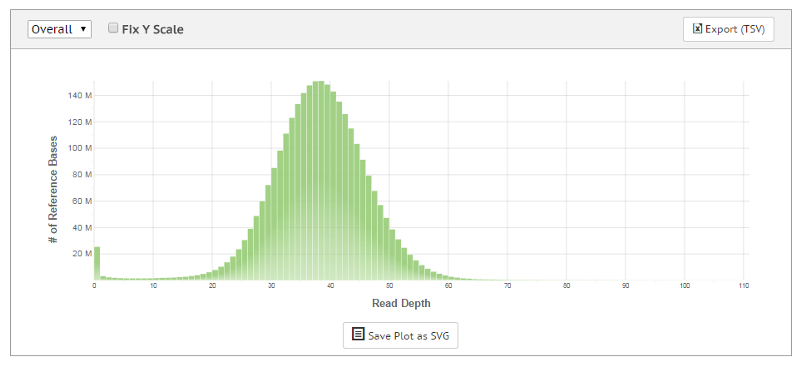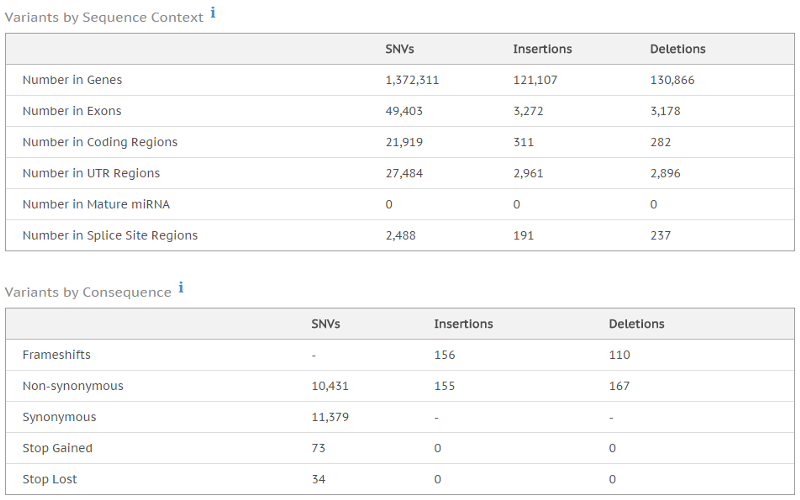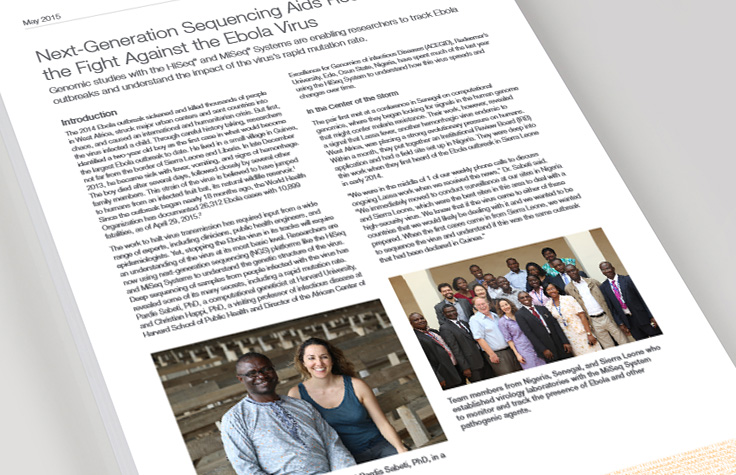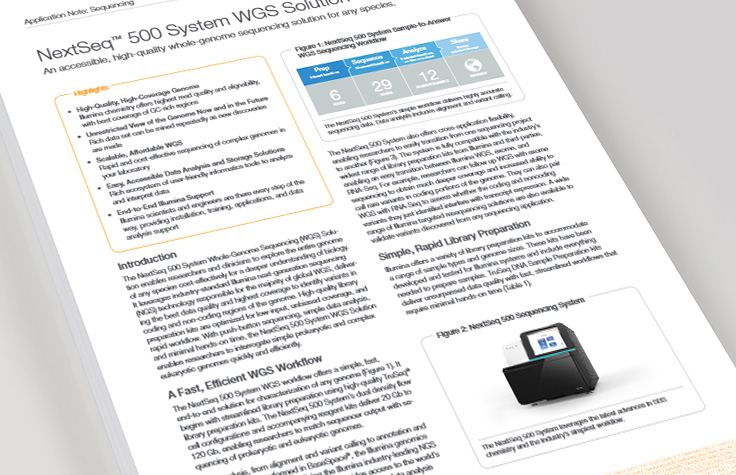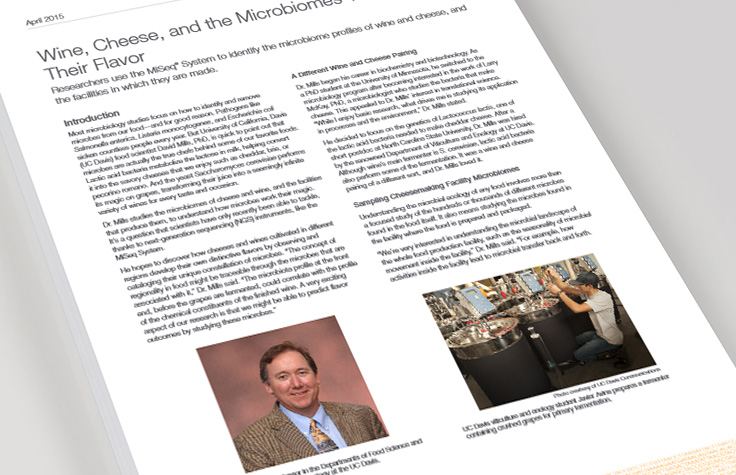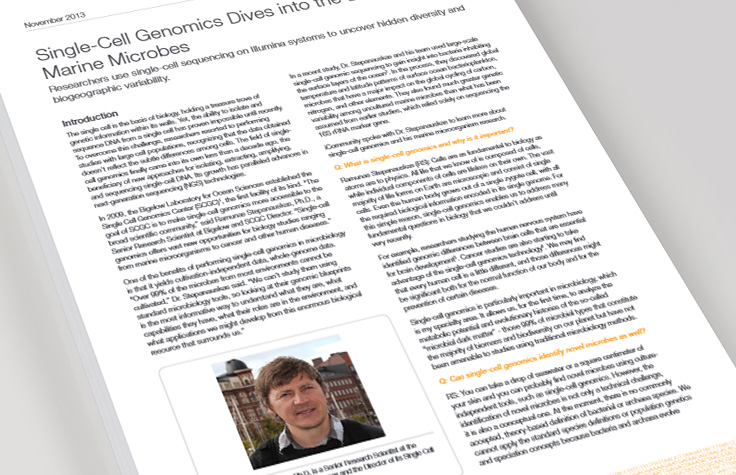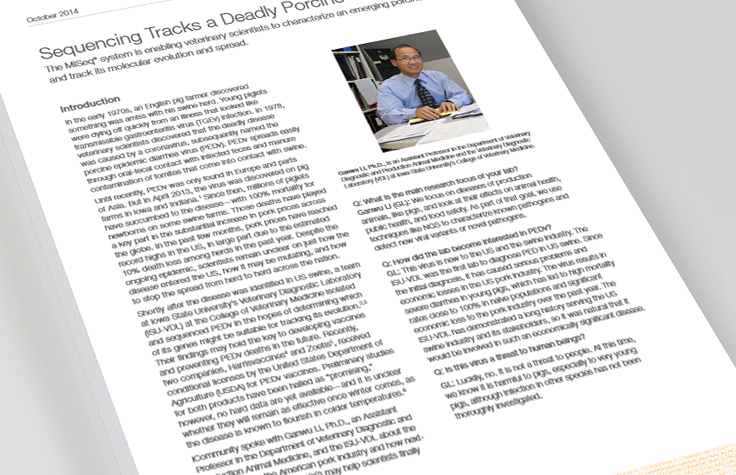Small Whole-Genome Sequencing
Introduction to Small Whole-Genome Sequencing
Small genome sequencing (≤ 5 Mb) involves sequencing the entire genome of a bacterium, virus, or other microbe, and then comparing the sequence to a known reference. Sequencing small microbial genomes can be useful for food testing in public health, infectious disease surveillance, molecular epidemiology studies, and environmental metagenomics.
Flexible, Accessible Sequencing Instruments
Benchtop sequencing systems enable novice users to perform targeted sequencing across a range of applications.
Advantages of Small Genome Sequencing
- Allows investigation of all genes from single organism culture
- Sequences thousands of organisms in parallel
- Provides comprehensive analysis of the microbial or viral genome
- Aids discovery of new biomarkers within a microbial or viral sample by providing distinct gene information from homologous chromosomes, supporting haplotyping
Fast, Culture-Free Microbial Analysis
Unlike traditional approaches, small whole-genome sequencing (WGS) studies using next-generation sequencing (NGS) do not rely on labor-intensive cloning steps. NGS also enables biologists to sequence hundreds of organisms simultaneously via multiplexing. NGS can identify low-frequency variants, genomic rearrangements, and other genetic changes that might be missed or are too costly to identify using other methods. For small genomes, DNA libraries can be prepared, sequenced, and analyzed in as little as 2 days.
Recommended Workflow for Small Whole-Genome Sequencing
Library Prep
Illumina DNA Prep
A fast, integrated workflow for a wide range of applications, from human whole-genome sequencing to amplicons, plasmids, and microbial species.
Data Analysis
BaseSpace Whole-Genome Sequencing App
Push-button extraction of biological data from whole-genome sequences.

Whole-Genome Sequencing and Drug Discovery
Learn how Joseph Petrosino, PhD uses whole-genome shotgun sequencing to obtain functional gene pathway and strain-based information in microbiome studies. These methods provide researchers and pharmaceutical companies with data to refine drug discovery and development.
Read ArticleCOVID-19 Solutions
Illumina NGS is uniquely positioned in an infectious disease surveillance and outbreak model. Compare NGS methods and find solutions to detect and characterize SARS-CoV2, track transmission routes, study co-infection, and investigate viral evolution.
Learn More
Comprehensive Small Whole-Genome Sequencing Workflow
Illumina sequencing by synthesis (SBS) chemistry is the most widely adopted NGS technology, generating approximately 90% of global sequencing data.*
In addition to our industry-leading data quality, Illumina offers integrated workflows that simplify small genome sequencing, from library preparation to data analysis.
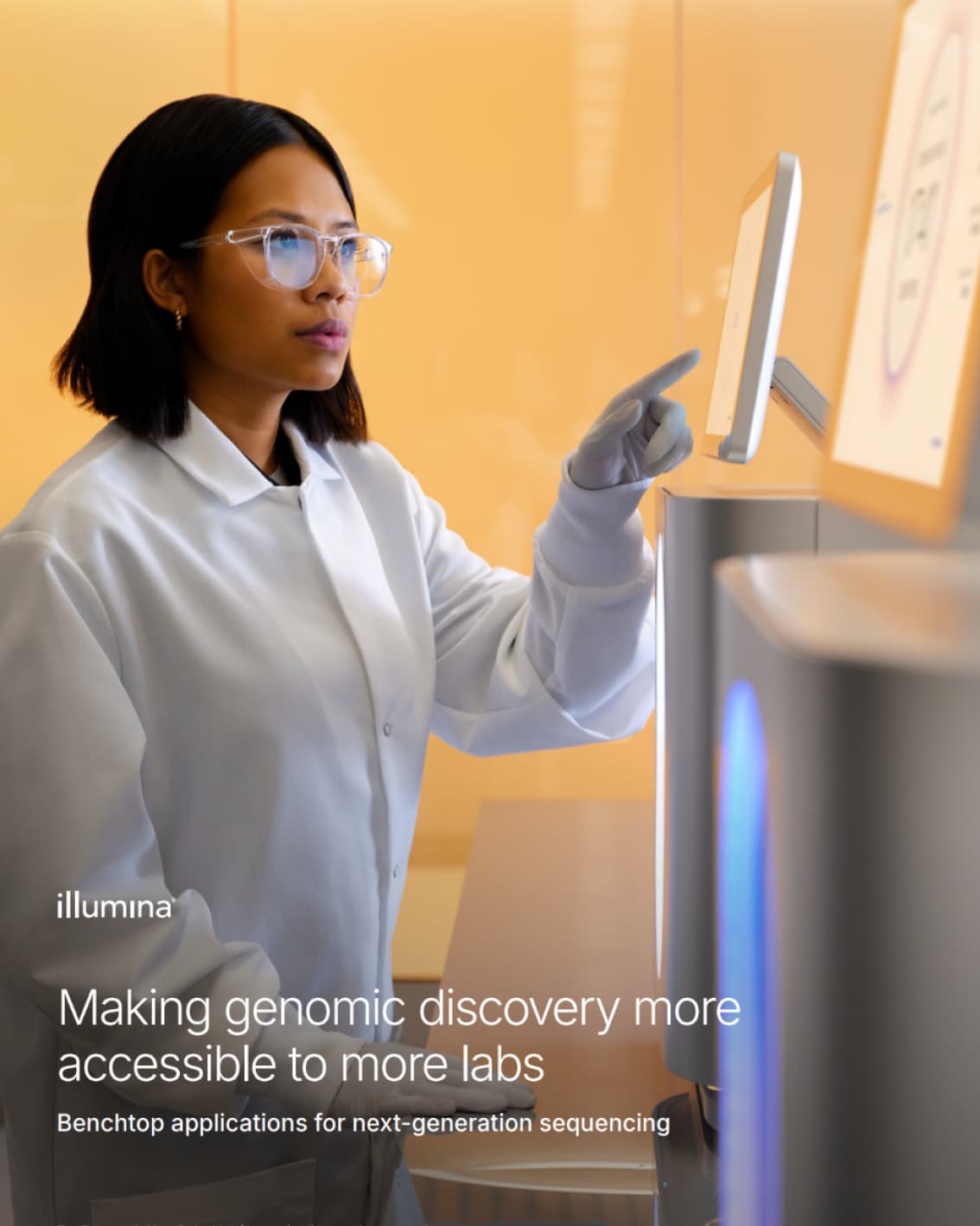
Empowering access for groundbreaking genomic discoveries
Illumina benchtop sequencing systems are making NGS technology more accessible to laboratories worldwide. Learn how these systems provide the speed, power, and flexibility to make breakthroughs in microbiology, cancer research, and more. The MiSeq i100 Series or NextSeq 1000 and NextSeq 2000 Systems can help make your NGS research goals within reach.
Download eBookRelated Solutions

Microbial WGS
Sequence and assemble genomes of novel organisms, finish genomes of known organisms, or compare genomes across multiple samples. Learn more about microbial whole-genome sequencing.

Shotgun Metagenomics
Comprehensively analyze all genes in all organisms present in a given complex sample. Detect very low abundance microbes that may be missed or are too expensive to identify using other methods. Learn more about shotgun metagenomic sequencing.
Interested in receiving newsletters, case studies, and information on genomic analysis techniques?
Enter your email address.
Additional Resources
*Data calculations on file. Illumina, Inc., 2015
